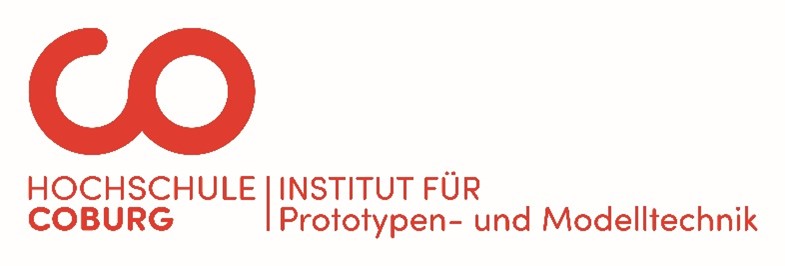Institute for Prototype and Model Technology
Services of the institute ipm
The institute deals with the entire process chain when creating prototypes and models.
It starts with 3D scanning of real spatial bodies and extends to the production of models from computer data using rapid prototyping or 5-axis milling. Services of the institute in detail:
Optical 3D scanning
With a mobile structured light scanner, it is possible to quickly capture the data of complex surfaces.
The advantages of 3D scanning:
- Point clouds of the surface
- contactless, independent of material
- Derive filtered triangle meshes from point clouds (polygonization)
- STL data for rapid prototyping and CNC machining
It is possible to create NURBS surfaces from triangle meshes for
- Reverse engineering, reverse engineering
- Surface data (IGES, VDA, STEP) for designs and CNC machining
5-axis CNC milling
The Reichenbacher ECO-SPRINT 5-axis CNC machining center can perform a wide range of tasks:
- 5-axis simultaneous machining
- 5-axis machining with adjusted axes
- Control system: Siemens Sinumerik 840 D
- Vacuum clamping table 2500mm x 2200mm
- Model height max.
1000mm - 24-position tool changer
- CAM software CIMATRON (input data IGES, STL, etc.)
- Suitable for various model making materials such as foam, wood and aluminum
3D printing with PolyJet technology
The RP system “Objet 260 Connex3 ” creates a wide range of possible applications:
- Production of concept, functional and master models
- High level of detail (layer thickness 0.016 mm / 0.03 mm)
- Single and multi-component printing
- Multi-material selection (flexible, transparent, temperature-resistant)
- Maximum model size: 258 mm x 250 mm x 205 mm
- Input data STL (volume model)
Vacuum casting
It is possible with the MCP 4/01 from MCP-HEK, Lübeck:
- Produce small series from two-component plastics in silicone molds
- Produce concept models and functional models with a high level of detail
The range of materials extends from transparent to colored / elastic and solid.
The maximum model size is 360mm x 330mm x 240mm.



